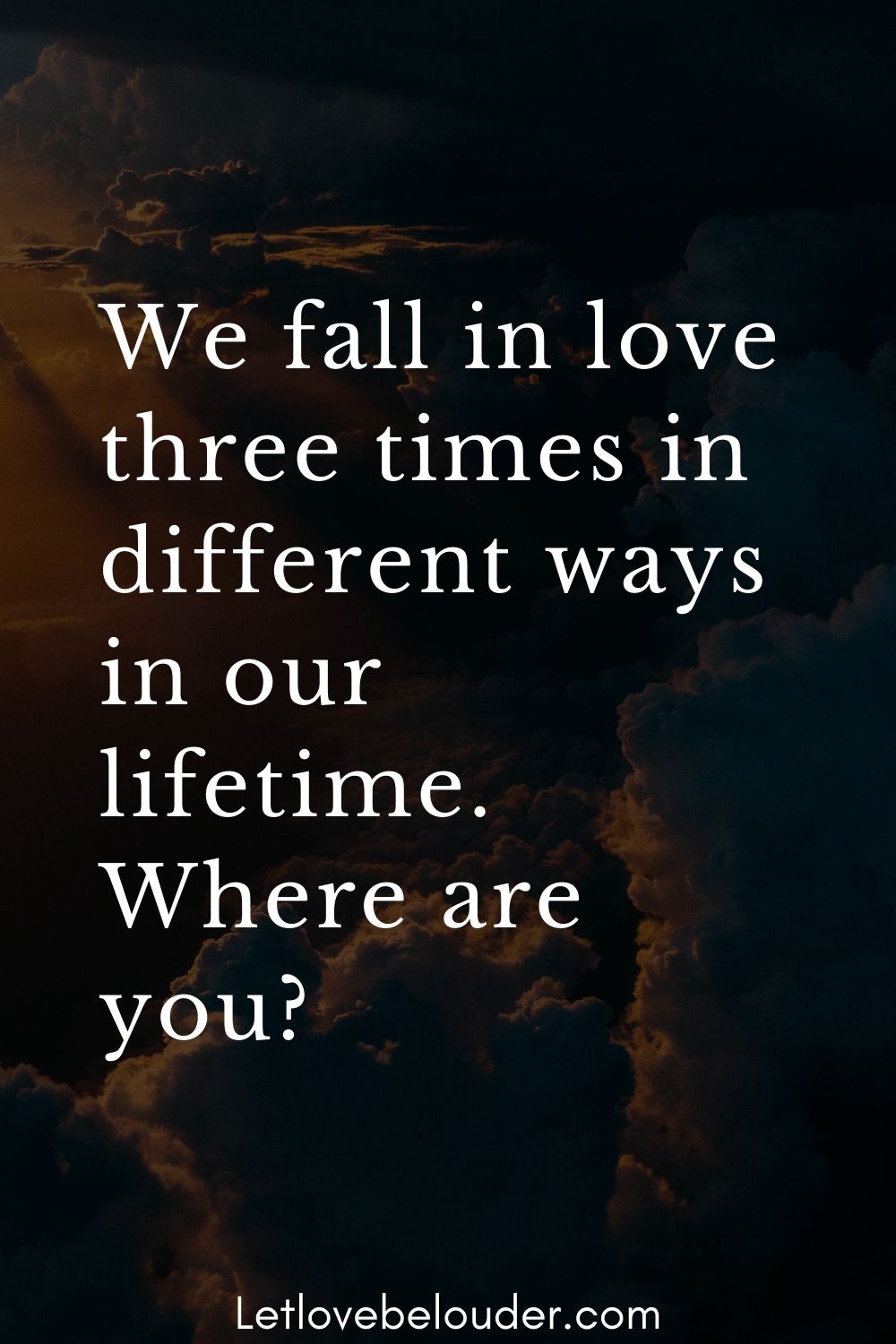Love is a particularly intriguing feeling for us humans. It is an explosive cocktail of laughter, crying, desire, anguish and pleasure, a confused feeling that one experiences towards one person and not another.
Is it a social construct, a natural instinct for preserving the species, or simply something else, something that relates to what we carry in us most human?
Good question. In any case, what is certain is that the butterflies in the stomach do not appear like that, by chance. On the contrary, it is a mental elaboration, which largely involves our unconscious and our subconscious.
Of course, we do not inevitably fall in love three times with three different people during our lifetime: each human being is unique, some will have to live a multitude of stories before finding their happiness, others will find their footwear very quick.
On the other hand, we fall in love in three different ways!
We can live the three stages described below with one and the same person, or live several times the same type of relationship with several different people … Each person has a unique experience, which is their own.
We all mature through experiences, and we build ourselves that way. According to psychology, there are three main stages in the evolution of our romantic relationships and the perception of the loved one. The strength of these different types of attraction then depends on idealism, narcissism and the sincerity of each.
First step: idealistic love
Idealist love, or idealized love relationships, is young love, the one that we generally live in middle school or high school. For many, this is our first love, and we are full of dreams, innocence and … naivety.
Romantic idealism comes to us from a misunderstanding of the realities of the world, and from a social construct acquired from childhood which makes us dream of a fairytale love. We unconsciously want all relationships, friendly or romantic, to be perfect, pure, eternal.
This ideal to which we tend can make us live beautiful stories, in all the candor of our youth … but in the end we are invariably confronted with disillusionment, and for many, with suffering. It is certainly not a waste of time, on the contrary, it is even necessary: this is what makes us grow, we realize that sometimes, even if it is less “perfect”, reality does is no less beautiful, even in its “imperfections”.
Second step: love by necessity
When idealism shatters after its painful confrontation with reality, begins a new stage, characterized by doubt, suffering, and loneliness, the feeling of abandonment. After the disillusionment, we find ourselves defenseless, and love ends up becoming a necessity, it turns into a vital need for our soul. But here, too, we are mistaken, and we sin by an excess of individualism.
Love cannot be selfish, even if it is to protect yourself, because this type of relationship also ends up making us unhappy in the end.
By wanting to heal the wound, to heal the old wound (consciously or unconsciously), we are embarking on a path where we love more for ourselves than for the other.
It is a strong, intense, passionate love, which is ultimately destructive and which can quickly fall into all kinds of abuse because we are too dependent on each other.
Third step: unexpected love
After having been too devoted to the other, then too self-centered, after having sinned by both excesses and after having realized that the two ways did not work, we put water in our wine.
We understood that there was a point of balance between giving everything for one and keeping everything for oneself.
We have grown, matured, in short: we are ready to truly love.
We have gained independence: love is no longer a vital need, we know that we do not have to live in pairs to be happy … and it is precisely at this point in our life that we are able to fall truly, madly, deeply in love.
Complicity, mutual understanding, and sincerity are the keys to this love, which is perhaps the closest thing to this fantasized notion of “true love”. You are in a relationship, but not only: your soul mate is also… your best friend. And that’s what makes you happy every day.
